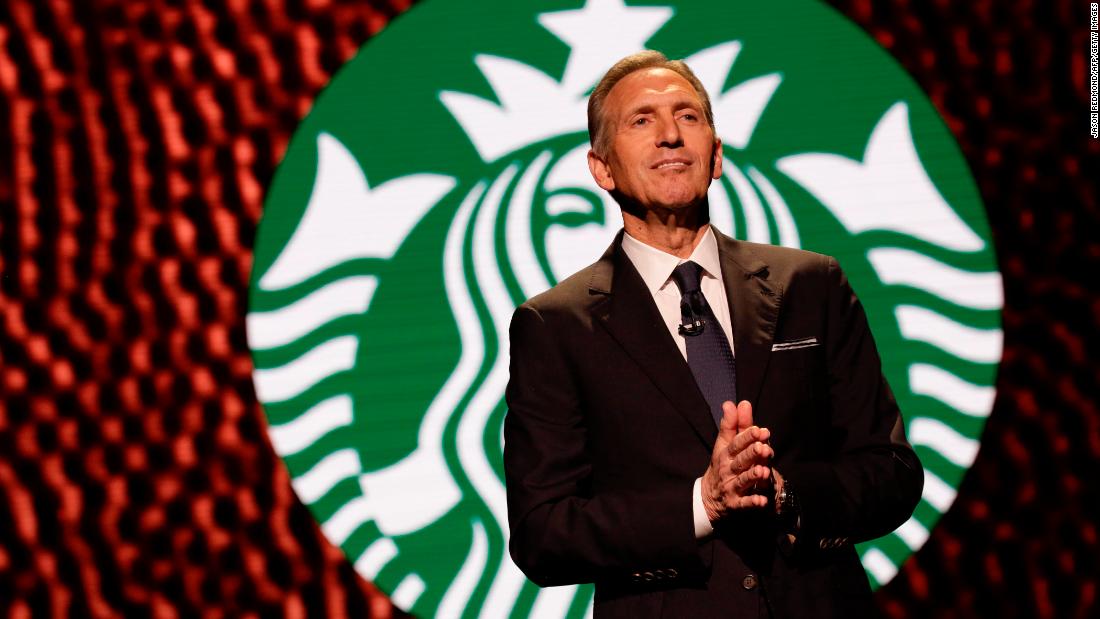
Schultz falls behind Ohio Sen. Sherrod Brown (21% likely to support), New York Sen. Kirsten Gillibrand (22%), and the other billionaire businessman thinking about running -- former New York City Mayor Michael Bloomberg (27%), who built a media company that bears his name and now might run for president as a Democrat.
Schultz was tied with Bloomberg for those who said they were "not likely at all" to support the two candidates. They follow the more than half of Americans who said they were "not likely at all" to support President Donald Trump, according to the poll. Americans were 11 times more likely to say they were not at all inclined to vote for him (44%) than to say they were very likely to back him (4%).
The number of people ruling him out at this point might be especially frustrating for Schultz, who is in the midst of a public tour pushing a possible run. He's a former Democrat who says his main goal is to defeat Trump, but has gained a lot of attention in recent weeks by attacking Democratic candidates for their progressive positions on health care and taxes. Schultz will be on a book tour this upcoming week and participating in a CNN town hall on February 12th.
Schultz also had low name recognition, almost half of Americans (46%) had never heard of him, 13% had a favorable opinion and 22% who saw him as unfavorable.
Just 4% in the poll said they were very likely to support Schultz in the 2020 race and another 16% said they were somewhat likely to support him.
But there is also indication that Democrats may not be correct with their concerns Schultz could take votes away from their candidate that should he be on the ballot for the general election in November, 2020. The poll suggests that he is most appealing to groups that, generally, have supported Trump.
Men, white Americans, and those who approve of the job Trump is doing as president are the most likely to say they'll support Schultz if he runs in 2020.
Those who were least likely to say they'll support a Schultz run were Democrats (15% very or somewhat likely), women (16%) and non-white Americans (16%).
Independents are one of the groups who are slightly more likely to support Schultz's bid for President, but they don't necessarily see him in a positive light. Twenty-two percent of independents reported they were very or somewhat likely to support him as a potential candidate, while only 14% of independents see him in a positive light.
The CNN poll was conducted by SSRS January 30 through February 2 among a random national sample of 1,011 adults reached on landlines or cellphones by a live interviewer. Results for the full sample have a margin of sampling error of plus or minus 3.8 percentage points, it is larger for subgroups
No comments:
Post a Comment